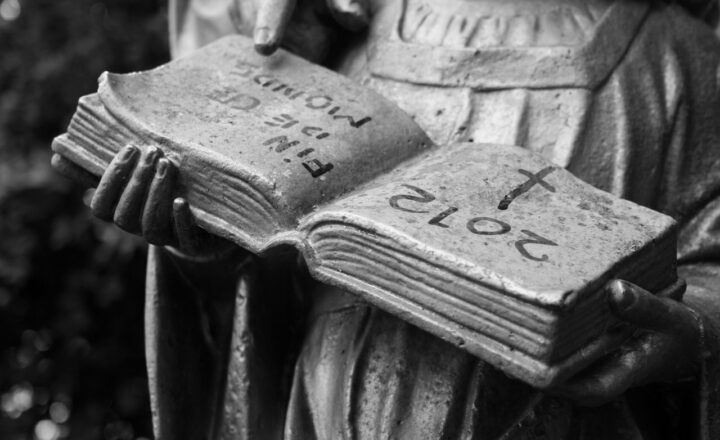The Most Intriguing Prophecies That Seemingly Predicted World-Changing Events
November 18, 2024

Throughout human history, numerous individuals have claimed to possess the ability to foresee the future. From ancient seers to modern-day psychics, prophecies have often had a profound impact on the course of events, shaping religions, cultures, and societies. In this article, we explore some of the most intriguing prophecies that seem to have accurately predicted world-changing events, examining their origins, contexts, and the repercussions they had on humanity.
1. Nostradamus: The Man, the Myths, and the Prophecies
Nostradamus, a French astrologer, physician, and reputed seer, has become synonymous with prophecy. His book, “Les Prophéties,” published in 1555, contains 942 poetic quatrains that many claim have predicted various events throughout history.
For instance, several enthusiasts point to the following quatrain as a prediction of the rise of Adolf Hitler:
“From the depths of the West of Europe,
A young child will be born of poor people,
He who by his tongue will seduce a great troop;
His fame will increase in the Eastern realm.”
While skeptics argue about the ambiguity of his verses, supporters highlight the uncanny correlations with historical events, such as the Great Fire of London, the French Revolution, and even the September 11 attacks.
2. The Prophecies of Baba Vanga
Baba Vanga, a blind Bulgarian mystic, is another figure known for her prophecies. Born in 1911, she reportedly predicted many significant events before her death in 1996. Among her most notable predictions:
- The September 11 Terrorist Attacks: Vanga foretold that “two steel birds would attack the American twin brothers.” This statement was eerily interpreted after the events of September 11, 2001.
- The Rise of ISIS: Baba Vanga predicted a rise of “Muslims from the East,” which many connect to the emergence of ISIS in the Middle East.
- Natural Disasters: She warned about devastating earthquakes and tsunamis, including events that happened in Indonesia and Japan later on.
Many people view her prophecies as warnings to mankind, though critics argue that they lack factual basis and are often too vague to be considered valid predictions.
3. The Hopi Prophecies
The Hopi people, an indigenous tribe in North America, possess a rich tradition of prophecies related to the future of humanity. Their predictions, which have been passed down orally for generations, often focus on environmental stewardship and the consequences of human actions. One specific prophecy forewarned about the “Blue Star Kachina” that will signal the end of the Fourth World (our current era) and the start of the Fifth World.
The arrival of the Blue Star is believed to herald significant changes, including natural disasters and societal upheaval. Prophecies concerning climate change and the importance of living harmoniously with nature have garnered more attention in recent years as people grapple with the realities of an increasingly warming planet.
4. Edgar Cayce: The Sleeping Prophet
Edgar Cayce, known as the “Sleeping Prophet,” was a psychic who would enter a trance-like state to make predictions while asleep. His numerous readings are claimed to have accurately foretold various events, including the Great Depression and World War II.
Some of his most notable predictions include:
- Natural Disasters: Cayce foretold significant natural disasters that would affect the United States, even predicting catastrophic earthquakes along the California coast, and a great flood in the southeastern part of the country.
- The Coming Age of Enlightenment: He spoke of an era of spiritual awakening and technological advancements, which many believe correlate with the rise of the Internet and global interconnectedness in the 21st century.
Cayce’s prophecies continue to spark interest among those curious about metaphysics and spirituality.
5. The Mayan Calendar and 2012 Predictions
The Mayan civilization is famous for its advanced knowledge of astronomy and mathematics, leading to the development of their complex calendar system. Some interpreted the end of the Mayan calendar in December 2012 as a prediction of an apocalypse or significant cosmic shift. While proponents of this belief anticipated catastrophic events, including natural disasters or societal collapse, others interpreted it as the end of one cycle and the beginning of another. Although 2012 came and went without incident, the fascination with the Mayan prophecies endures today.
Conclusion: The Allure and Skepticism of Prophecies
Prophecies have continued to capture the imagination of individuals throughout history, serving as both guidance and warnings. While many have been interpreted as accurate predictions, the ambiguity surrounding these prophecies often invites skepticism. The truth remains that while prophecies can offer insights into human fears and aspirations, they also reflect our desire for control and understanding of the unknown.
As we continue to navigate the complexities of the modern world, we must assess these narratives critically while remaining open-minded to the lessons they can impart. After all, the future may be uncertain, but humanity’s curiosity about what lies ahead remains unwavering. We may not know what is to come, but through reflection on past predictions, we can glean insights that inform our journey forward.








